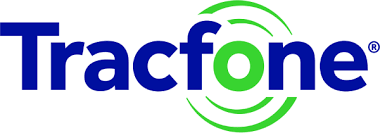TracFone Wireless Inc. agreed to pay $13.4 million as part of a civil settlement to resolve allegations that it violated the False Claims Act by signing up hundreds of thousands of ineligible customers to the FCC’s Lifeline Program. TracFone provides wireless Lifeline service under the SafeLink Wireless brand to millions of low-income households.
Lifeline provides nearly $2 billion each year to aid low-income consumers with their telecom needs. In many cases, this consists of a free cell phone (provided by the carrier) and free monthly cell phone service (provided by the government), notes the Department of Justice (DoJ). In order to qualify for Lifeline, a consumer’s income must be at or below 135 percent of the federal poverty guidelines or the consumer must receive benefits from certain specified federal assistance programs.
The United States alleged that between 2012 and 2015, Miami-based TracFone impermissibly signed up more than 175,000 subscribers who were ineligible for the program. TracFone hired independent third-party sales agents, including agents hired by Elite Promotional Marketing Inc., to enroll these customers.
According to the DoJ, these agents learned that TracFone’s computer software contained a glitch that allowed ineligible persons to enroll in Lifeline. Some agents in Florida then exploited the glitch to increase their consumer enrollments and commission payments.
The government alleged that TracFone failed to review the applications and didn’t investigate reports of clearly ineligible subscribers enrolled in the program that would have revealed the glitch. The FCC said the scheme took advantage of non-low income veterans, Medicare patients, law enforcement, and others who didn’t qualify for Lifeline. TracFone eventually discovered the software glitch in August 2015, and repaid more than $10.9 million to Lifeline. This amount was credited as part of the $13.4 million settlement.
The settlement resolves an action in the United States District Court for the Middle District of Florida, makes the Universal Service Fund whole, and provides damages to the government for TracFone’s misconduct. Under the settlement, the Universal Service Fund will retain nearly $11 million in previously refunded overpayments and TracFone will pay an additional $2.5 million in damages to the government. The damages take into account TracFone’s disclosure, help with the government’s investigation, and early repayment, notes the DoJ.
Further, TracFone agreed to take part in a three-year compliance plan to help ensure adherence to the FCC’s Lifeline rules.
Verizon acquired TracFone earlier this year, with TracFone continuing as a wholly-owned subsidiary of Verizon subject to FCC-imposed conditions. The compliance plan obligates Verizon to oversee and audit Tracfone’s Lifeline program.
The settlement with TracFone resolves a lawsuit filed under the whistleblower provisions of the False Claims Act, which permits private parties to file suit on behalf of the United States for false claims and share in a portion of the government’s recovery. The civil lawsuit was filed in September 2015 by Farrell Gordon, a former Lifeline sales representative at Elite. Elite previously settled with the federal government for $95,000 based on ability to pay. As part of the resolution, Gordon will receive $462,500.
By Leslie Stimson, Inside Towers Washington Bureau Chief





Reader Interactions